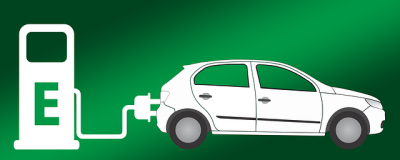I'm reading more and more reflections on the situation of the European car industry. The European car industry is at a crucial moment. And, honestly, none of the reflections I read on the matter are very optimistic. The situation is complex, and the competition is fierce. The data is clear: China has taken the lead in the manufacture and sale of cars, especially electric ones, and its advance is unstoppable.
And this is not a subtle advance. It is a true disruption in the market. Large European companies are seeing their sales in China plummet in the face of growing competitiveness from Chinese manufacturers, who are offering increasingly better and more affordable cars. The transition to electric vehicles, a necessary change for the future, has been embraced by China with massive government support, something that cannot be said of Europe. China has taken the lead, manufacturing not only cars but also most of the batteries needed to operate them. This capacity for vertical integration gives them a significant strategic advantage.
Their data is overwhelming: China manufactures and sells more cars than Europe and the United States combined. The situation is even more complicated when considering the consequences of Trump's trade policies, whose tariffs, although targeted at other countries, end up harming the US industry and, consequently, favoring Chinese manufacturers.
The situation is not only economic, it is strategic. The race for leadership in the electric car industry is a reality, and China is currently the big winner. European companies, accustomed to the profits of recent years, face a new reality: competitors offering unbeatable prices and, more importantly, improving their products at an astonishing speed. Dozens of Chinese manufacturers are participating in this race, a situation that generates a dynamic and highly competitive market.

The picture, or rather, the reality, is stark. Time is clearly on the side of Chinese manufacturers. While the difficulties American companies face due to Trump's tariffs cannot be ignored, the truth is that their future looks increasingly bleak in the context of the rise of Asian companies.
What can we do? Complaining gets us nowhere. The solution lies not in shifting blame, but in decisive and coordinated action. Europe needs to make a fundamental decision: How can it compete against China's well-oiled machine, where governments and businesses seem to go hand in hand?
Europe knows how to make cars. But it needs to adapt to a new era. Collaboration, even with competitors, becomes crucial. Strategic alliances are needed, a joint effort to develop joint technologies and share knowledge, in order to offer electric cars at competitive prices. Government subsidies and incentives could be crucial to adjust the balance.
However, cooperation alone is not enough. European companies must act quickly. The short-term mindset, so entrenched in some business circles, must be replaced by a long-term strategic vision. Politicians, for their part, must overcome electoral myopia and focus on the industry's survival and future.
The situation is not simple. The energy transition will not be quick or painless, but clearly, the answer cannot be resignation. A future without a strong automotive sector in Europe does not correspond to a robust economy. Europe cannot ignore its automotive industry, as it represents more than 7% of EU GDP.
We cannot lose an industry of this importance. The price of stagnation is too high: workers losing their jobs, consumers paying higher prices, and a less competitive future for Europe in the global marketplace.
The consequences of inaction will inevitably be felt by those least prepared to absorb the blow. Workers, who have dedicated their lives to the industry, will be the hardest hit by the decline of European industry. Citizens, too, will feel the effects of rising vehicle prices.
This is a time for deep reflection, but above all, for decisive action. Europe cannot afford to fall behind in this race toward electrification. The current situation demands unity, collaboration, and a radical change of mindset.
History has shown us that companies and governments that have acted with foresight have been rewarded, while those that have remained stagnant have been relegated to oblivion. Now it's Europe's turn to demonstrate that its future is in its own hands. And time is running out.